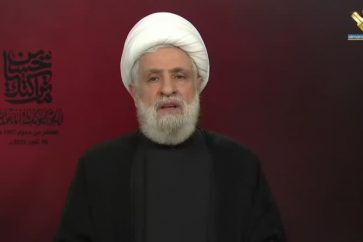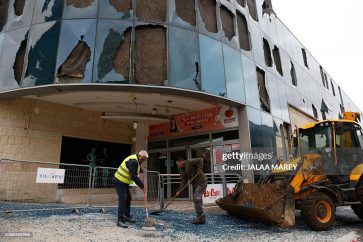Al-Akhbar Newspaper*
Translated by Areej Fatima Al-Husseini
The reluctance of foreign ministers of the “Five-Nation Group” countries (which include the US, France, Qatar, Saudi Arabia, and Egypt) to attend yesterday’s meeting at the headquarters of the Permanent Mission of France to the United Nations in New York appeared to be an indication of the meeting’s failure before it was held. This is due to divisions among its members, contrary to what the recent “movements” of the Saudi Ambassador to Beirut, Walid al-Bukhari, and the French presidential envoy, Jean-Yves Le Drian, suggested.
The failure to issue a statement after the meeting, which included an American objection to the French management of the Lebanese issue, confirmed the presence of those divisions and their demand to set a time frame for Le Drian’s mission instead of leaving the deadlines open.
Initial Leaks: Le Drian, Checkmate
“The meeting’s deliberations were contrary to the Saudi-French vibe that prevailed in Beirut during Le Drian’s presence. It was clear that the Americans, who were pushing to assign the mission to Qatar, didn’t support the French-Saudi rapprochement that Le Drian and Al-Bukhari were eager to show,” according to the initial leaks that reached Beirut.
It is worth noting that Qatar’s Minister of State for Foreign Affairs, Mohammad bin Abdulaziz Al-Khulaifi, attended the meeting. Therefore, the American position threatens to overthrow Le Drian’s mission, who is expected to return to Beirut next month but is not “armed” with a unified “five-nation” statement similar to the one he held following the Doha meeting last July to take action against those who obstruct progress in the presidential file.

The Qatari Stance
At the opening session of the 78th session of the United Nations General Assembly in New York yesterday, the Emir of Qatar, Tamim bin Hamad Al Thani, stated that “it is tragic that the suffering of the Lebanese people has extended due to political calculations,” emphasizing that “the danger has become imminent to state institutions in Lebanon, and we stress the necessity of finding a solution to the presidential vacuum.”
He further stressed “the necessity of finding a sustainable solution to the political vacuum in Lebanon, finding mechanisms to prevent it from recurring, and forming a government capable of meeting the aspirations of the Lebanese people and lifting them out of their economic and development crises.”
According to well-informed sources, the most crucial conclusion from yesterday’s meeting is that Lebanon will remain on the waiting list while regional circumstances, particularly on the US-Iran path, develop. The source added that taking any action while awaiting these circumstances, whether French, Qatari, or Egyptian, is a waste of time.
In the last two days, news has spread about the arrival of a Qatari delegation in Beirut in a new endeavor to develop an internal understanding with the support of members of the “five-nation group.” Also, leaks came out regarding a list of names carried by the envoy, such as the Lebanese Army Commander General Joseph Aoun and the retired Brigadier General George Khoury, the former Lebanese ambassador to the Vatican, whose name was recently added. However, prominent sources denied this information, revealing that the Qataris postponed their visit to Beirut until the first week of next month, specifically until after the visit by Le Drian.
The sources add that the Doha actions is carried out by officials with a permanent presence in Beirut, and their movements continue even if they lack initiative. As for the main delegation that the Lebanese are waiting for, its arrival has been postponed.
As a result, no Arab or Western diplomatic activity will take place until the expected return of Le Drian, who, according to reports, will call for a dialogue at the Pine Palace in Beirut. Then, as promised, Speaker of the House Nabih Berri will issue a summons for dialogue in Parliament along with his deputy, Elias Bou Saab.
Lebanese Stance
In this context, Maronite Patriarch Bechara al-Rahi adopted a new stand yesterday, appearing to have changed his mind about the discussion. “I did not say that I am in favor of dialogue,” he remarked at a press conference in Sydney. “Rather, I stated that if the dialogue takes place after everyone agrees to it and the Parliament is currently in an electoral phase, and during elections, dialogue can take place.”
Al-Rahi’s stance was not well received in Ain Al-Tineh. However, according to his sources, Speaker Berri is keen not to engage in political skirmishes with anyone to avoid aggravating any party. The sources added that he continues with his call and that his management of the dialogue is subject to change based on changing circumstances in the next stage, but things are moving in this direction so far.
*: Article published by Al-Akhbar on Wednesday (September 20, 2023).
Al-Manar.com.lb is not responsible for the content of this article. All opinions expressed are solely those of Al-Akhbar.
Source: Al-Akhbar Newspaper




